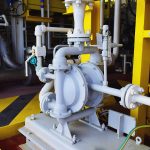In the fast-paced world of industrial processes, efficiency and precision are crucial factors that can make or break a business. Companies are constantly seeking ways to streamline their operations, reduce errors, and maximize output. One technology that has been gaining traction in the realm of process optimization is adaptive control systems. These intelligent systems have the potential to revolutionize how businesses operate by dynamically adjusting to changing conditions in real-time. Let’s delve into the world of adaptive control systems and explore whether they hold the key to seamless process optimization.
The Evolution of Control Systems
Control systems have long been an integral part of industrial processes, providing mechanisms to monitor and regulate various parameters such as temperature, pressure, flow rates, and more. Traditional control systems operate based on predefined setpoints and fixed algorithms, which can sometimes lead to inefficiencies when faced with dynamic and unpredictable conditions. This is where adaptive control systems come into play.
Adaptive Control Systems: The Game-Changer
Adaptive control systems are designed to adapt and self-adjust in response to changes in the process or environment. By utilizing advanced algorithms and machine learning techniques, these systems can continuously analyze data, identify patterns, and optimize control strategies on the fly. This real-time adaptability allows for improved performance, increased flexibility, and enhanced reliability in industrial processes.
Enhanced Flexibility and Resilience
One of the key advantages of adaptive control systems is their ability to handle complex and nonlinear processes with ease. Traditional control systems often struggle when faced with non-linearities or disturbances, leading to suboptimal performance and potential downtime. Adaptive control systems, on the other hand, excel in such scenarios by automatically adjusting their parameters to maintain stability and performance, even in the face of uncertainties.
Real-Time Optimization for Maximum Efficiency
Efficiency is the name of the game in today’s competitive landscape. Adaptive control systems offer real-time optimization capabilities that can significantly boost efficiency and productivity in industrial processes. By continuously monitoring data and adapting control strategies, these systems can fine-tune operations to achieve optimal performance levels while minimizing waste and energy consumption.
Improved Product Quality and Consistency
Consistency is key when it comes to manufacturing high-quality products. Adaptive control systems play a crucial role in ensuring product quality and consistency by maintaining tight control over key process variables. By dynamically adjusting parameters to meet desired specifications, these systems help reduce variations and deviations, resulting in more consistent and reliable output.
Cost-Effective Solutions for Long-Term Success
Implementing adaptive control systems may require an initial investment, but the long-term benefits far outweigh the costs. By improving process efficiency, reducing waste, and enhancing productivity, these systems can lead to substantial cost savings over time. Additionally, the ability of adaptive control systems to adapt to changing conditions means they can future-proof operations and provide a scalable solution for evolving business needs.
Seamless Integration and Scalability
Adaptive control systems are designed to seamlessly integrate with existing process control infrastructure, making them a versatile solution for a wide range of industries. Whether you’re operating a small-scale manufacturing plant or a large-scale production facility, adaptive control systems can be tailored to meet your specific requirements. Furthermore, these systems are highly scalable, allowing for easy expansion and adaptation as your business grows and evolves.
Unleashing the Potential of Adaptive Control Systems
The future of process optimization lies in the hands of adaptive control systems. With their ability to adapt, learn, and optimize in real-time, these intelligent systems hold the key to unlocking new levels of efficiency, productivity, and reliability in industrial processes. By embracing this cutting-edge technology, businesses can stay ahead of the curve and pave the way for a more streamlined and successful future.





